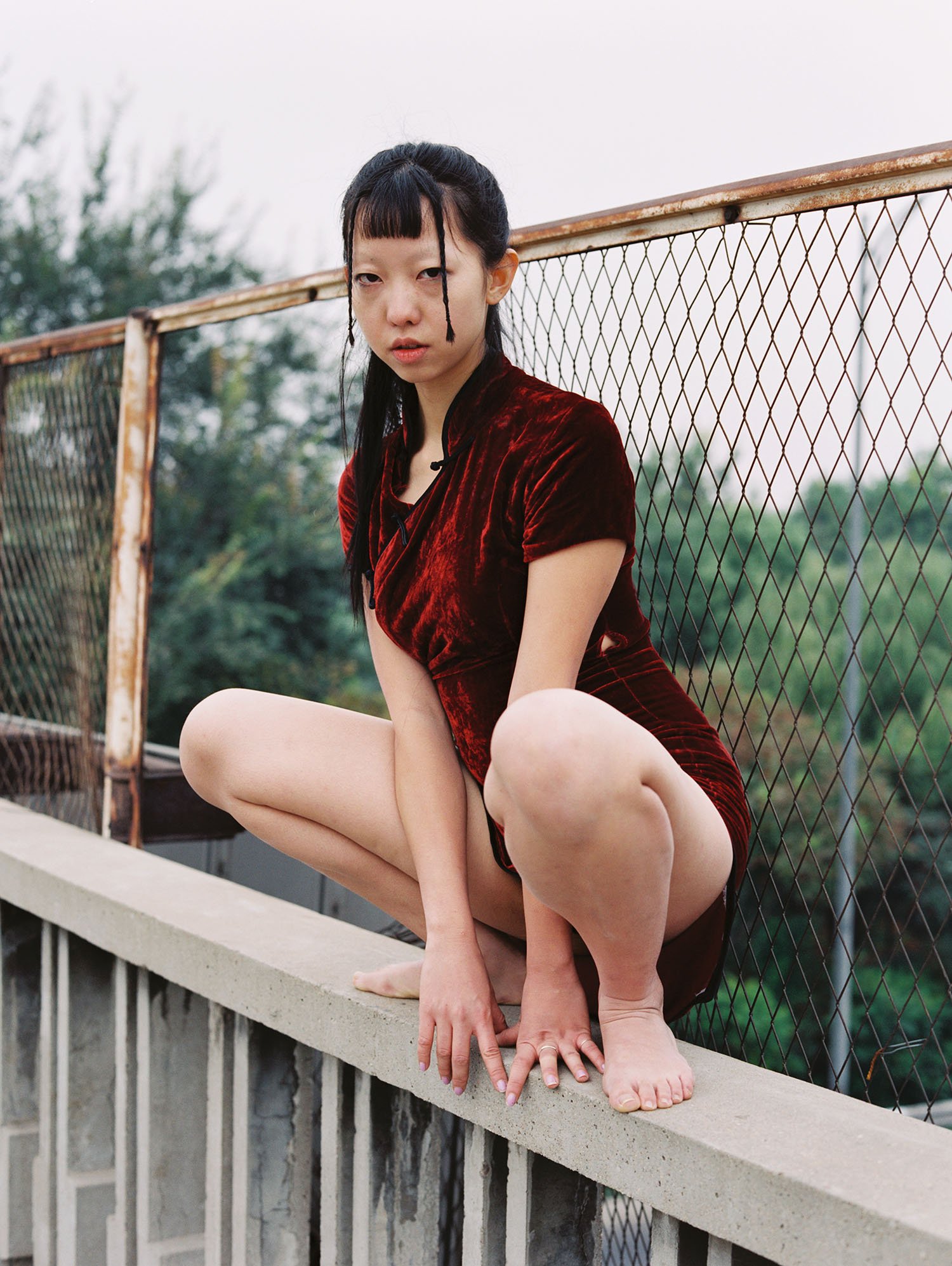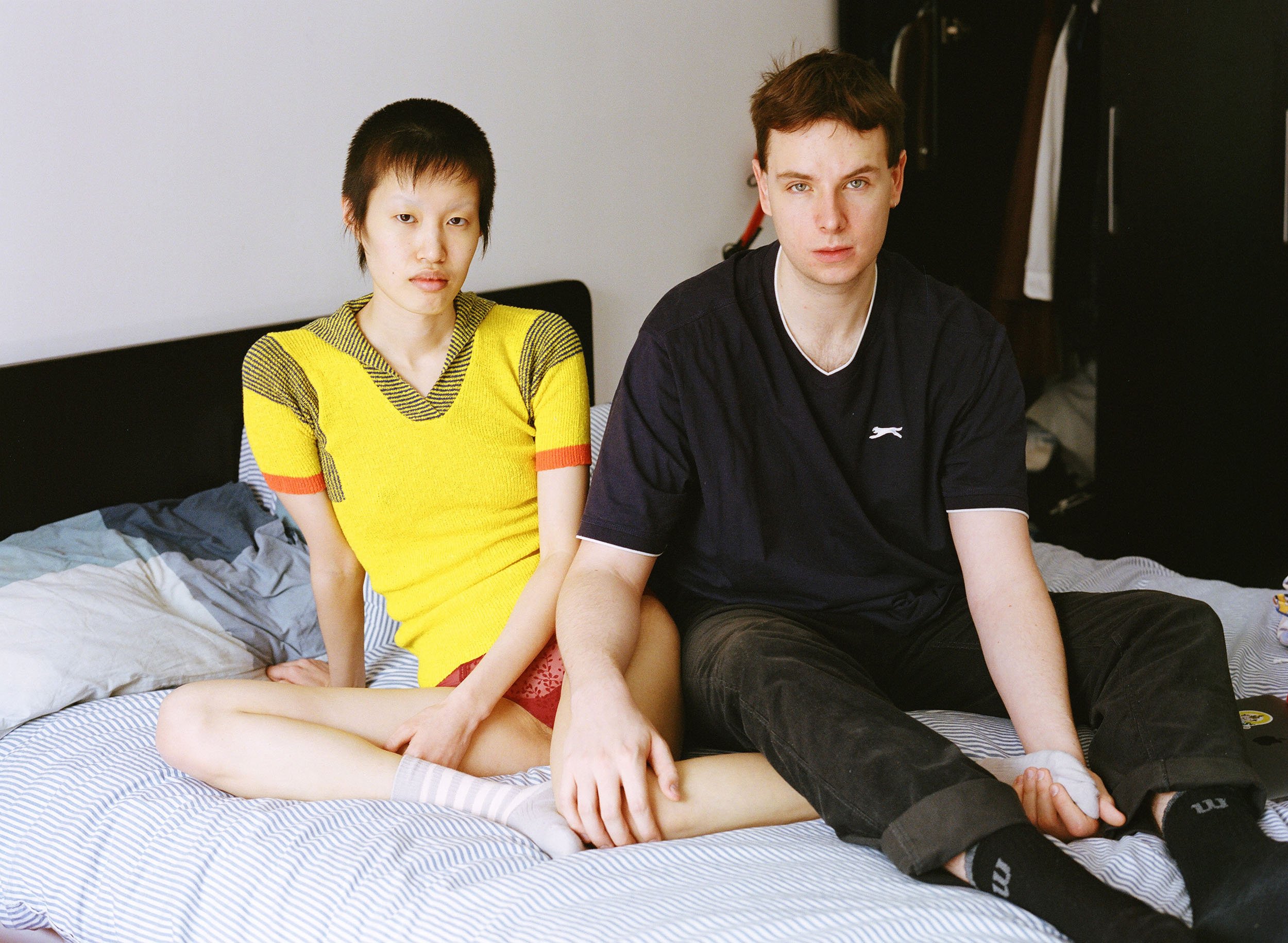The Universality Of Human Emotions
Luo Yang is a Shanghai-based Chinese photographer, who uses her photographic lens to depict her processes and the constant learning about the intrinsic characteristics of people. Her projects range from a desire for self-discovery by observing others to a documentary approach in which the other is the focus. This allows for a shift in the perspective of the viewer and the photographer from inward to outward. Luo’s work is about researching the characteristics of her subjects to help them express their hidden, authentic personality and emotions while uncovering a perspective on the universal traits of people in a given time and place. Her characters appear brave and real, letting go of their self-consciousness and insecurities about how society might perceive them.
Luo's images are cinematic due to the work with colors, framing, and setup, which enables the line to cross and separate the subject from the photographer and the possibility of differences in perceptions between them. Recently, her work was featured in a group exhibition, NUDE, in Fotografiska Berlin as part of the narrative about the naked human body in Contemporary Photography.
In this interview, we speak with Luo about the way she expresses herself through photography. Luo explains, “Images are the media that connected me with the outside and inspired me to express my own world through it.” We discuss Luo’s ongoing project, GIRLS, which started in 2007 and presents women born in the 80s and 90s. The duality between strength and vulnerability is at the core of the series, along with the change in women's experiences that take place over time. With her project Youth, Luo Yang explores the younger generation and their interpretation of the world, which comes through their behavior and ways of expressing themselves stemming from the obtained freedom.
Words by Nastasia Khmelnitski
‘I have been very interested in images since I was little. I remember the magazines my mom bought and watching TV at home; through these experiences, I got to understand the world outside.’
My Narrative
Hi Luo, thank you for the opportunity to speak with you about your work. We saw your images displayed at Fotografiska Berlin, at the Nude exhibition. The images displayed drove attention to the characters presented, especially the photo, Maoer, 2017.
Let’s start with your decision to move to Beijing and become a photographer. How did it happen, and what ignited your passion for telling stories through your camera?
Hello! I was studying at an art college in northeast China, where I started the first stage of my work. Later, I had the opportunity to put my work on the internet for more people to see. I received job and exhibition invitations from Beijing, and naturally, I moved there. I have been very interested in images since I was little. I remember the magazines my mom bought and watching TV at home; through these experiences, I got to understand the world outside. So, images are the media that connected me with the outside and inspired me to express my own world through it. In college, I borrowed a camera from friends and started to shoot people and stories around me as the first step of my expression.
‘I've come to realize that there are so many brave and beautiful people and so many touching stories.’
GIRLS
The ongoing project GIRLS started in 2007 and took a span of over ten years. It depicts women one might meet in their day-to-day interactions in the most authentic way. Through the lens of the camera, we see the duality and contrast between strength and vulnerability, fragility and bravery, alongside the uniqueness of characters opening up to the photographer. What are the main changes in society and in the appearance of women you noticed while working on the project? What was the most eye-opening part for you?
GIRLS is a project that went on for over a decade. It captures girls born in the 80s and 90s. I think these female groups are changing with China’s rapid development and the global expansion of online media. In terms of appearance, I feel that from the initial small group of girls who are independent and bold, these characteristics are gradually becoming popular and mainstream. Girls are increasingly inclined to express and present themselves, and even in this era of the internet, they have learned to package themselves. I feel that through interacting with them, it has opened up my understanding of the world. I've come to realize that there are so many brave and beautiful people and so many touching stories.
‘When photographing young people, I adopt a more objective and calm documentary style, capturing moments in a relaxed and playful manner.’
Youth
With the project Youth, you decided to explore Gen Z, the generation of people born in the late 90s and beginning of the 00s. The series has a different atmosphere when compared to Girls. The characters appear more self-confident, provocative, and rebellious while being diverse. China went through some major changes from a one-child policy to a more open perspective and laws. In what way has the approach you take to creating the images changed throughout the years? What do you put more emphasis on today when working with people you photograph?
I feel that the creative approach hasn't changed significantly, but there are changes in the people and the era, naturally influencing the shooting style. When photographing young people, I adopt a more objective and calm documentary style, capturing moments in a relaxed and playful manner. On the other hand, when shooting the GIRLS series, it feels more like I'm documenting myself. There's a sense of pleasure in exploring pain and expressing myself.
‘When I'm shooting, I don't specifically consider the audience's perspective and their thoughts. I focus more on capturing my inner feelings and the emotions.’
Empowerment
One of the main themes you touch and develop with your work is empowerment and identity in modern China, celebrating beauty. You started with images of women later on, taking a direction to include a different generation and also male characters. The possibilities the younger generation has today are more wide, and there is more freedom in general that allows them to discover their uniqueness and be brave with their identity. How do you perceive the role of the viewer in engaging with your photographs, translating the theme to apply to the understanding of themselves?
When I'm shooting, I don't specifically consider the audience's perspective and their thoughts. I focus more on capturing my inner feelings and the emotions and lives of the models that emanate from the heart. Of course, when showcasing the work later, I believe that some viewers with shared experiences or inner feelings will naturally be moved or attracted. This is the universality of human emotions, even across different cultural backgrounds. And, of course, the feedback from the audience is gratifying and serves as a motivating force for my creative process.
‘My upcoming projects are likely to explore themes related to the collision of Eastern and Western cultures or delve into issues concerning the exploration of more primitive human states in the context of global consumerism.’
Upcoming Projects
What theme or narrative are you researching, and what can we expect from you in the upcoming months?
In fact, two years ago, I started living a global nomadic lifestyle, exploring various places and observing people's lives. I didn't rush to document everything because I believe the artist's own feelings and experiences are precious and important. During my residence abroad, the constant collision and integration of my own Eastern and Chinese cultures with external cultures shaped my life. In this process, I realized that Chinese immigrants are almost everywhere in the world. Therefore, my upcoming projects are likely to explore themes related to the collision of Eastern and Western cultures or delve into issues concerning the exploration of more primitive human states in the context of global consumerism.












